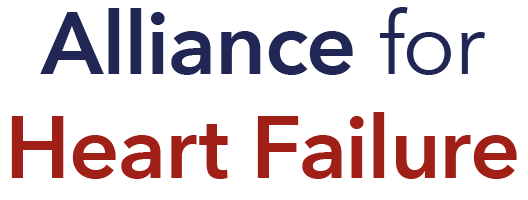Welcome to the first Alliance for Heart Failure update for 2022. We foresee a busy and important year for the Alliance as the NHS looks to recover from the pandemic and starts to undergo significant structural change, with the Health and Care Bill currently moving through Parliament. We have an important role to play amid this change by continuing to drive awareness of the recommendations from Heart Failure: A Call to Action as well as working more closely with regions where heart failure has emerged as a major problem.
- Regional Outreach
We are aware that there are a number of key regions where heart failure services are in need of support, particularly in the Midlands and the Northeast. In these regions we are concerned about the uptake of rehabilitation for heart failure patients and how it will resume after the pandemic. We also have ongoing concerns over both the use of – and access to – NTproBNP testing. There is still regional variation in how this service is offered to patients and the way in which the results are used that is preventing effective diagnosis of heart failure.
The strategy for our outreach is as follows:
- Engage with the leads for all Cardiac Networks to share and educate on the Call to Action recommendations and report.
- Engage with the regional Cardiac Network Leads and ICS Leads in target areas to provide support such as business cases, best practice case studies, information on potential sources of funding, and buddying opportunities.
- Last year NHS England awarded new funding to an Exeter University-led team to roll out REACH-HF to 60 healthcare professionals in up to 20 sites across England in 2021-22. We will monitor progress of this and use it to provide case studies for best practice.
Last year we received 17 responses from our outreach to the regional systems across the NHS and we are confident in building on this in 2022.
- Building on Heart Failure: A Call to Action
In 2022, we want to continue to highlight recommendations from our report. As the NHS works through the elective care backlog, there are a number of recommendations to engage key stakeholders on a national level. In particular, we want to continue the drive on early diagnosis, the use of specialist teams, and the uptake of cardiac rehabilitation. We also aim to highlight the way in which investment and technology in these areas can reduce the burden on the NHS.
We aim to do this by:
- Building on relationships with key stakeholders – last June we met with key representatives from NICE with an agreement to support our regional campaign on variation.
- Continue to engage with NHS England. Last year we met with the National Clinical Director for Heart Disease, Nick Linker, and Diane Saunders from the NHSE/I Policy Team. The discussion focused on the emerging Cardiac Networks and how they will be managed, monitored and integrated with other NHSE/I initiatives.
- Using our allies in Parliament to raise awareness of regional variation and unwarranted readmissions through further Parliamentary Questions. In September, Maria Caulfield replaced Jo Churchill as Parliamentary Under-Secretary of State for Patient Safety and Primary Care. We have written to Maria – who is a former nurse – with a briefing and a request for a meeting.
- Continuing to maintain the report’s presence in the media, particularly among those involved in primary care, who can play a vital role in improving early diagnosis of heart failure.
- Engaging with Diagnostic Hubs by offering consultation and support, in particular around workforce issues such as availability of echo physiologists, as well as coordinating examples of best practice across the country.
- Heart Failure Community
The Alliance is keen to build support for improvement and recommendations among heart failure professionals across the breadth of provider services. In 2022, we want to continue to grow this invaluable network. As always please get in touch if you can assist with any of the aims outlined in this newsletter, particularly with regards to engaging with Diagnostic Hubs.
This Autumn the British Society for Heart Failure holds its conference in Westminster and we will keep members updated on our presence there. We will also maintain and build awareness through the web, social media, and newsletters. If you have not already done so, please follow us on Twitter to stay updated with events and developments throughout the year.
Thank you for your ongoing interest and support for the Alliance. If you have any comments or suggestions, please contact the Alliance Secretariat.
Yours sincerely
Louise Clayton, Joel Rose – Co-chairs, Alliance for Heart Failure
